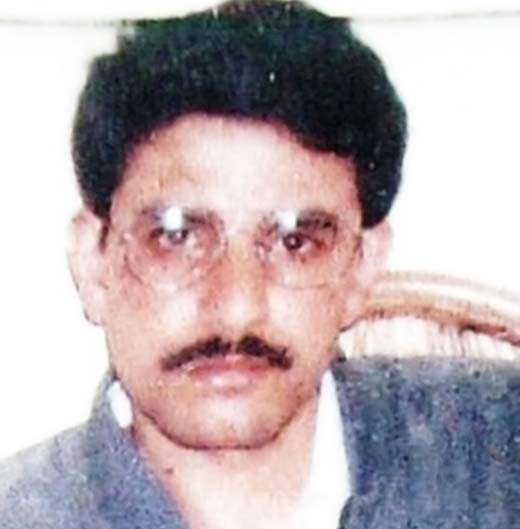Driven by the thrill of marrying one of the most wanted guerrillas of 90s, young Zubaida was widowed at an age of 17. As her hero was gone, Zubaida was abandoned by the people her husband gave his life for. Syed Asma narrates her struggle for dignity and survival
 Zubaida was in her teens when she grew interest in the Islamic literature and wanted to make Islam her way of life. Seeing her interest towards the religion, her uncle who then was associated with Ikhwan-ul-Muslimeen, a militant outfit, offered her to run its women’s wing – Sayyidaat-al-Muslimaat. Her code name was Zainab-al-Ghazali.
Zubaida was in her teens when she grew interest in the Islamic literature and wanted to make Islam her way of life. Seeing her interest towards the religion, her uncle who then was associated with Ikhwan-ul-Muslimeen, a militant outfit, offered her to run its women’s wing – Sayyidaat-al-Muslimaat. Her code name was Zainab-al-Ghazali.
Zainab, an Egyptian activist, was founder of the Muslim Women’s Association, Jamaa’at al-Sayyidaat al-Muslimaat and was closely associated with Muslim Brotherhood.
Zubaida’s Sayyidaat-al-Muslimaat was mainly focusing on spreading Islamic teachings, running darazgahs and helping militant families to survive after militant’s death, she says.
It was early 1995 when she joined the organisation. Performing her job well she impressed her senior colleagues and they took a decision of getting her married to one of their colleagues, then a ‘celebrated’ militant- Hilal Beigh.
Passionate about the freshly started resistance movement in Kashmir, Hilal was one among the first group of young men who crossed the border for arms training. Resident of Aloochibagh, running a tin sheet shop in Srinagar, Hilal along with other three youth, Hamid Shiekh, Waheed and Ali Mohammad Peer, crossed over to Pakistan in February 1988 with the help of Ghulam Nabi Bhat. Bhat was the younger brother of Maqbool Bhat who in February 1984 was hanged in Tihar jail.
It did not take their [Zubaida’s and Hilal’s] elders long to decide their fates and get them married. Zubaida was 16 year old then and Hilal was in his late twenties. The fact that Hilal is an active militant, made no difference to her while making a decision of getting married to him, says Zubaida.
“I had heard about him and had seen him once in one of the meetings of the organisation. I knew he had a vision and would never stop me from my job- spreading message of Islam, so, I said yes,” says Zubaida.
Though, her family in the beginning were reluctant as Hilal was in the ‘wanted’ list of the state but Zubaida had a clear mind, she wanted to marry him.
“I told my parents if I am destined to live a life of a widow it will happen in any way, whether I marry a militant or a doctor or a businessman,” says Zubaida, “but I would prefer to be called a widow of a martyr than a widow of any other man.”
She finally convinced her family. In later half of 1995, the duo got married. It was a big day for the duo and the militant outfit, as their ‘star’ was tying the knot. The ceremony was attended by a huge number of guests including the entire separatist leadership and people from different walks of life, moreover, the people who admired the resistance movement and the way Hilal was operating, says Zubaida.
Hilal till then had been active as a militant for almost 8 years and was on the ‘wanted’ list. It is even said that state had put reward money for killing him but the announcement was never made public. Though, not reported or documented anywhere, Zubaida and Hilal’s colleagues talk about him being a daring guerrilla.
He started operating with JKLF and then became the first administrator of Student’s Liberation Front (SLF).
“He had no fear of death. He was a dare devil,” says one of his acquaintances wishing anonymity. “He had an extra-ordinary military mind. He along with other friends started a mission- ‘death squad’ which included a group of well-trained youth who used to kill government forces openly. They used to enter their bunkers and shoot them or even mutilate their bodies.”
“The idea was to make them [government forces and the state] feel the pain that Kashmiris were going through,” Hilal’s acquaintance adds. “Though ill-equipped, less powerful [as compared to the state], he wanted to cause maximum damage to them.”
So, for obvious reasons Hilal could not take part in his own marriage ceremony.
Interestingly, his friends and acquaintances placed a decorated bridegroom’s turban during the ceremony, instead of the groom. After Nikah ceremony was solemnized Zubaida, along with her brother, sister and friends of Hilal, was taken to Yasin Malik’s home at Maisuma. Keeping in view the position of Hilal and the vigilance of the state on his activities, Zubaida after Nikah had to stay at Yasin’s place for two days, she remembers.
“After two days, a few friends of Hilal, accompanied me to his hide-out at Barzulla. Both of us stayed there together for 15 days and then he [Hilal] left,” says Zubaida.
Admiring Hilal as a human being and as a militant, Zubaida says she never stopped him from going on any operation though knowing the dangerous repercussions.
“I knew he was out for a cause. I also knew the extent of his honesty for the cause, so, I never stopped him or became his weakness. Never! But on the contrary encouraged him,” says Zubaida with a strong voice explaining the status of a martyr in Islam.

“But after a year when Hoorain [their daughter] was born I once reluctantly advised him to stop working on the ground but he categorically rejected my suggestion.”
Perhaps, Zubaida, now a mother, had gauged the mood of times and had started looking at the repercussion of a short life-span of a militant.
Zubaida and Hilal, a happy and contended couple, could not stay together for long. Hilal was killed after fifteen months of his marriage, when Hoorain was only few months old. “In these fifteen months we would have spent only a couple of months together, otherwise he was on the move always, shifting from one hide-out to another,” says Zubaida.
Though, it has been almost 18 years since Hilal was killed but Zubaida narrates the incident of that dark fateful night as it has happened yesterday. It still gets tears rolling down her cheeks and wretches her heart.
The End of Romance
It was July 17, 1996. He was just back from his tour of Nepal and Pakistan. Hoorain was a few months old and he was perhaps meeting her for the first time since she was born. Clock stuck 8 in the evening and two men in civvies knocked at the door. Hilal went out to open the door and strictly ordered Zubaida to stay in. She dutifully obeyed but got worried when he did not return for long. After a few hours a group of uniformed armed Special Task Force men (STF) broke into their rented house and took away Khursheed Ahmed, the closest aide of Hilal. Zubaida says she and Khursheed’s wife started screaming and wailing. “I ran after them and asked about Hilal but they did not answer.”
She adds, “In pitch dark night I could see numerous police vehicles with their headlight on – it was scary as if we were in a war.”
At about 2 in the night, she remembers, the STF men came again and searched their rented house. They turned everything topsy-turvy and turned down every claim that they have picked anyone from that place. “They said they were looking for some Haider Ali and while search operation, they interrogated Hilal’s cousin who had come for a night’s stay at our place,” says Zubaida.
In the morning, Zubaida got the news that Hilal and Khursheed have been killed.
“Hilal before getting martyred was tortured. His eyes were taken out, his fingers and toes were cut and his name ‘Hilal’ was engraved on his back,” says Zubaida.
“I could not recognize him…his friends told me it is him…his body was in bad shape…worst shape…I still can’t believe it was him.”
But Zubaida’s sorrows did not end with Hilal’s demise. “One who dies, goes forever but his survivors have to suffer through hell especially in a society like ours,” says Zubaida.
Even after Hilal was killed, the government forces still conducted raids at Zubaida’s place. It has only been three years that the frequency of the raids has lessened.
After Hilal’s demise, Zubaida had to come back to her parent’s place as her in-laws discouraged her presence in their home. They also evicted her and Hoorain from their property. Abiding by the religion, Islam, she chose to remarry to have a secure future but her proposals were turned down because of her daughter or else she was given an option of getting married and leaving Hoorain at her grandparent’s place.
Leaving one’s children would never be acceptable to a mother. It wasn’t acceptable to Zubaida either. She chose to stay at her parent’s place with Hoorain and chose to work for her survival with dignity, she says.
She decided to remain single and chose to live as a widow. Source of her survival became a question, she shares, but she had to find a way.
“However, my brothers helped me a lot but I could not have been their lifelong responsibility,” she says. So, she sold-off her gold, lend some money from her father and bought a house in old city. Living at her parent’s place, she put the new house on rent. Besides, she got trained in crotchet stitching [aari kaim] and learned cutting and tailoring.
“I used to work day and night but did not ask for money from any one. I did not want to be tagged as a burden,” she asserts. She made Hoorain to study in a decent private English medium school. She is now in 12th standard.
Hilal has given his life for the resistance movement, Zubaida believes, “it was the responsibility of the society to take care of us and many like us who have lost their dear ones in the on-going movement but if we ask for favours they [society] tag us as beggars.”
For last 18 years, Zubaida is earning to give best of the education to her daughter and says she usually talks to her about Hilal and makes her conscious of the role he has played for making the resistance movement a success.
“Hoorian hasn’t seen him, she does not even remember the time – a few months, she spent with him but yes, she certainly is proud of him,” concludes a confident and a contended mother with a smile on her face and spark in her eyes.
“Hoorain is a proud daughter of a martyr!”















